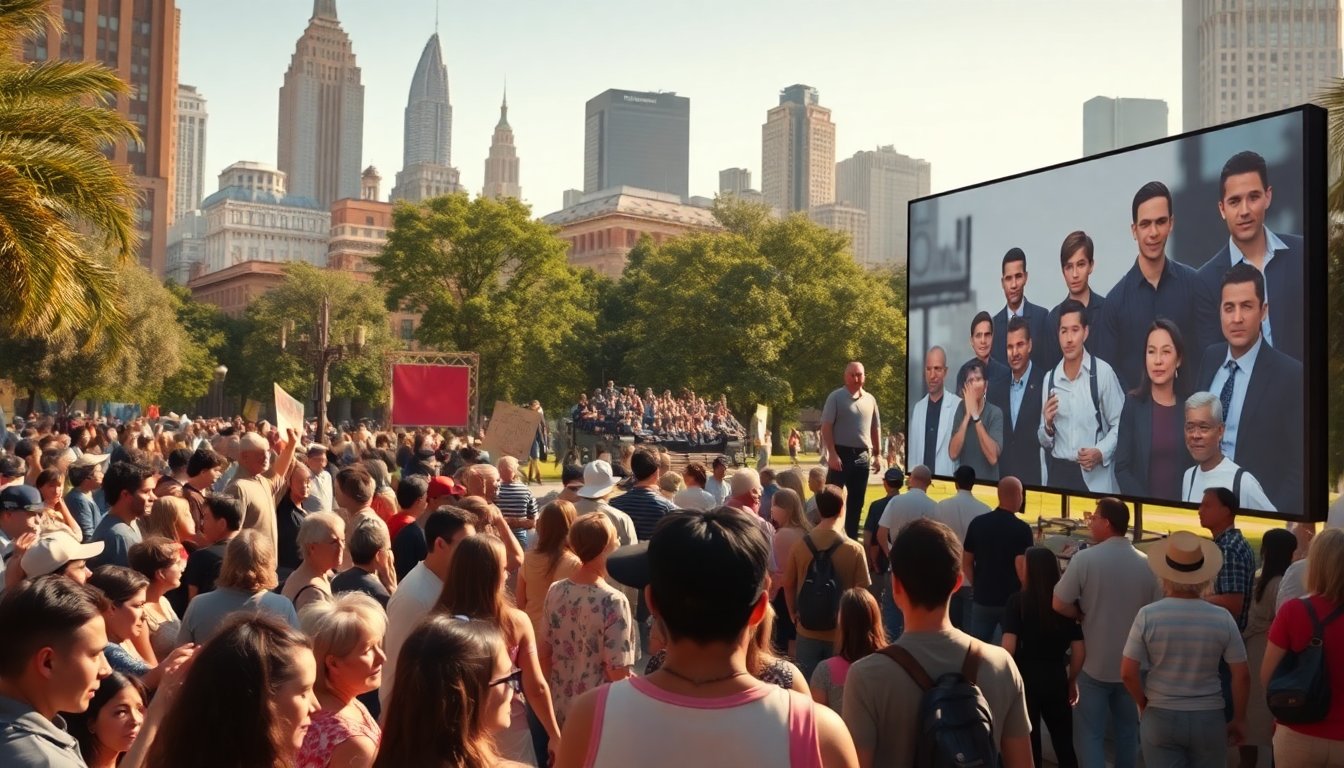Table of Contents
The landscape of American celebrity culture has undergone significant transformation over the decades. Celebrities, once primarily viewed as entertainers, have become influential figures capable of shaping public opinion, social norms, and political discourse. This article explores the evolution of American celebrities and their key roles in society.
Historical context of American celebrity culture
The roots of celebrity culture in America can be traced back to the early 20th century. With the rise of Hollywood, icons such as Charlie Chaplin and Mary Pickford captured the public’s imagination and became household names. The Star System established during this era created a blueprint for how celebrities were marketed and received by audiences. This system not only enhanced the status of individual actors but also laid the groundwork for the ongoing phenomenon of celebrity worship.
The rise of the media
The evolution of media transformed the representation and reach of celebrities. The introduction of television in the 1950s brought stars into homes across America, creating a deeper personal connection between celebrities and their fans. Icons such as Elvis Presley and Marilyn Monroe emerged as symbols of entertainment and cultural change. Their images came to embody the American Dream while also reflecting the complexities of social issues, including race relations and gender roles.
The influence of social media
Social media platforms have transformed how celebrities interact with their audience. Stars now have the ability to shape their own narratives and connect directly with fans, eliminating the need for traditional media. Platforms like Instagram and Twitter allow celebrities to share personal moments and opinions, enhancing their relatability. This evolution has given rise to a new type of celebrity, often called influencers, who achieve fame through online engagement rather than conventional entertainment avenues.
Celebrity activism and social issues
American celebrities are increasingly stepping beyond their roles as entertainers to engage in activism. Notable figures such as Leonardo DiCaprio and Beyoncé are using their fame to advocate for critical issues like climate change and racial equality. This shift highlights the growing expectation from the public for celebrities to use their influence for social good. The rise of celebrity activism has enhanced awareness of various social issues and ignited movements that extend beyond the entertainment industry.
The impact of celebrity culture on society
The influence of celebrity culture reaches beyond entertainment. Celebrities shape public perceptions and cultural trends, affecting everything from fashion to political opinions. Celebrity endorsements serve as a significant marketing strategy, allowing brands to tap into the appeal of famous individuals to engage consumers. This trend highlights the connection between celebrity culture and consumerism, where the tastes of well-known figures can steer market dynamics.
Criticism and challenges of celebrity culture
Here are the facts: celebrity culture faces significant criticism despite its allure. The constant scrutiny and pressure on celebrities can lead to severe mental health issues. Expectations of perfection and the public’s unending desire for more create a toxic environment, resulting in struggles with addiction and anxiety among stars. Furthermore, the glorification of celebrities often overshadows the achievements of unsung heroes, raising important questions about societal values and priorities.
The evolution of American celebrities mirrors broader societal changes. They not only entertain but also serve as cultural icons and activists. As we navigate the complexities of modern media and social dynamics, the influence of celebrities on American culture remains deep and multifaceted.


